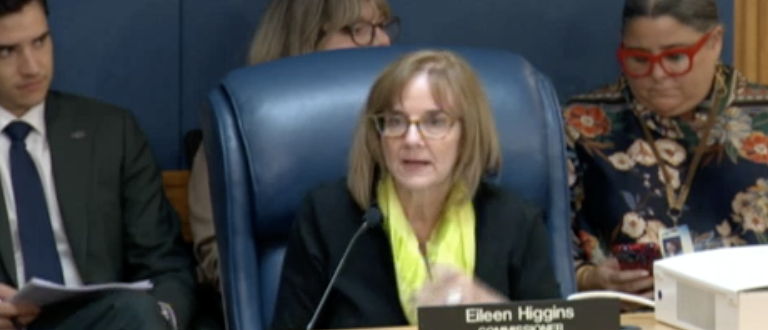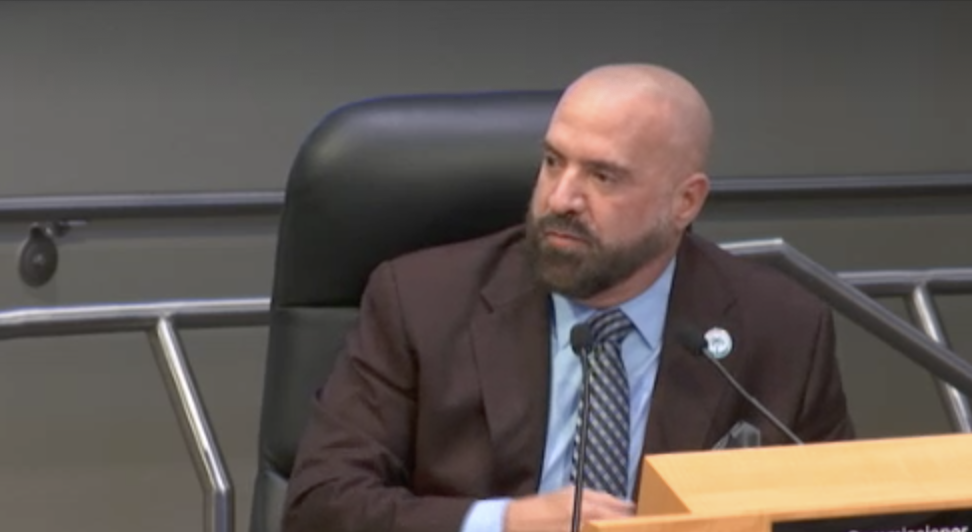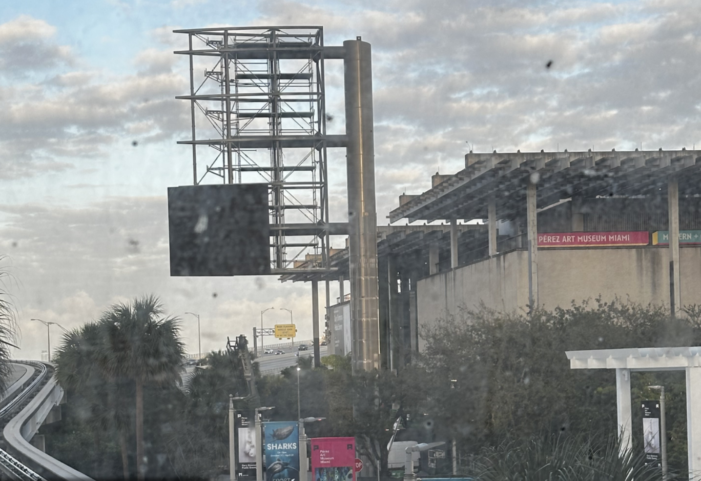Miami can’t be trusted to run their own show.
Just as the city of Miami grapples with the issue of giant LED billboards on public land in the downtown, Miami-Dade Commissioner Eileen Higgins wants to take away the municipality’s ability to opt out of the county’s sign regulations.
Higgins has sponsored an ordinance at Tuesday’s county commission meeting that would revoke authority for the city of Miami to opt out of certain Miami-Dade sign regulations in the urban core.
This comes on the heels of an intense debate at the city about the LED billboards that have been approved and going up at the Perez Art Museum Miami and the Adrienne Arsht Center for the Performing Arts and a city commission meeting last month where the loosened regulations that allowed those signs was also rescinded. The second reading of that repeal ordinance is March 14.
Read related: Miami repeals law allowing massive billboards despite threat of lawsuit
None of this means that the signs that are going up will be taken down, of course. They were approved under the rules at the time and so may be grandfathered in as “non-conforming” uses, which is a good way for the government to avoid costly litigation and gives them an option to address the issue in the future.
Higgins did not return calls to her office and cellphone. But Miami Commissioner Damian Pardo, who sponsored the repeal item in Miami as well as a moratorium, says he had spoken to the commissioner, whose district includes the downtown residents complaining about the billboards, and that she was equally disturbed by the massive size of the signs.


“We’ve been talking throughout,” Pardo said, adding that Mayor Daniella Levine Cava and several other commissioners were “opposed to these supersized signs.”
According to the item on the agenda, the county commission in 2019 authorized the city of Miami to opt out of certain regulations within the county sign code but only on properties that are within the city’s urban core, or downtown area. Turns out, that was a boneheaded idea.
In 2022, the county commission revised the sign code significantly for both incorporated and unincorporated areas to allow billboard “and other Class C sign structures with offsite commercial advertising within protected areas along expressways and with digital illumination and to provide for certain signs with protected areas along rapid transit systems rights-of-way, including Class B sign structures containing onsite commercial or non commercial messages and Class C sign structures with offsite commercial advertising that serve streets other than the transit system rights-of-way.”
Read related: LED billboards could buy their way to Miami streets via campaign donations
The signs proposed for the PAMM and performing arts center do not fall under any of those categories.
If her colleagues agree, the opt-out for the city would be “null and void” and any municipal ordinances adopted with the opt-out “are hereby suspended and shall have no further force or legal effect.”
Here comes the “but.”
“A sign that was lawfully established pursuant to a municipal ordinance that complied with the requirements of Ordinance No. 19-05 may be deemed a legal non-conforming use or structure, as applicable,” the item states.
If you want to support grassroots, micro local watchdog journalism, you can with a contribution to Political Cortadito. Thank you and please keep reading.
But even the “but” has a “but.”
“It is provided, however, that if such sign has been determined to violate federal or state law by the agency with jurisdiction over the applicable law, then the respective sign cannot be deemed to be a legal non-conforming use or structure.”
Does Higgins know something we don’t? There has been some scuttlebutt about the sign not adhering to state law. When do we find out if it does or doesn’t? Maybe all of this is moot.
Either way, it’s pretty clear from other actions — the Silver Bluff street wars, the CITT withholding funds — that the county doesn’t trust the way the city conducts business. Commissioners should remember this on Tuesday and in the future so that they never let the city opt out of anything ever again.

